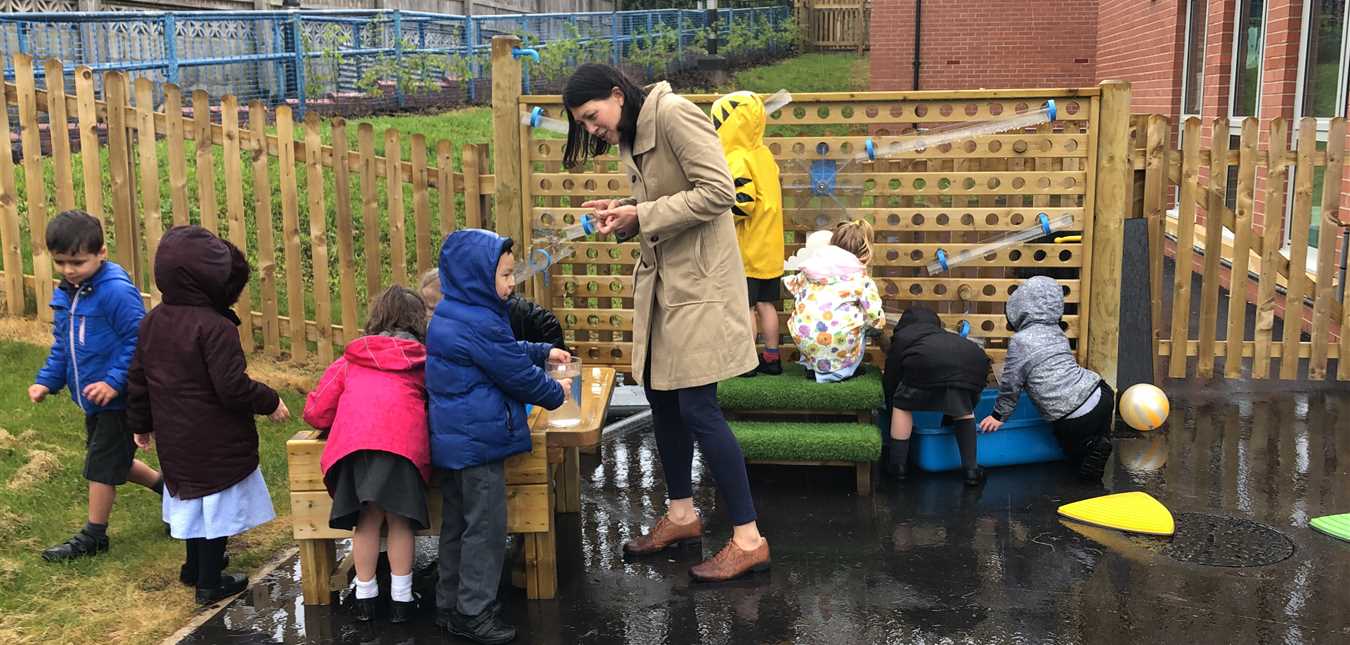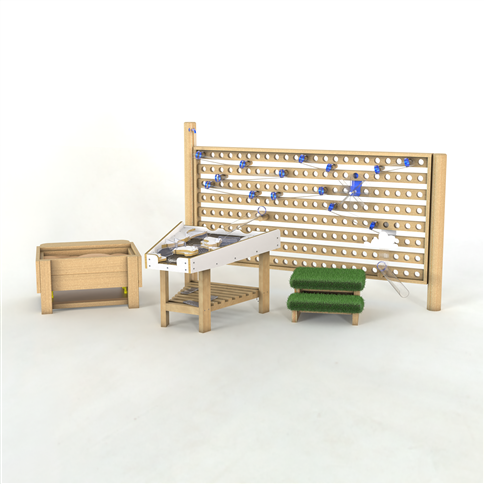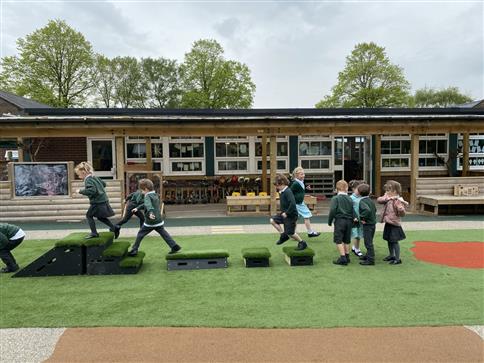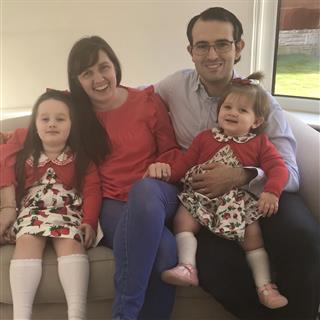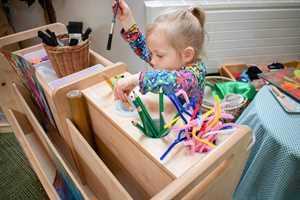Children's Health
Developing Communication and Language through Play
Development in spoken language is a crucial part of the National Curriculum as verbal communication underpins success in reading and writing.
Pupils should be exposed to quality and variety of language in order to gain confidence in spoken language and listening skills.
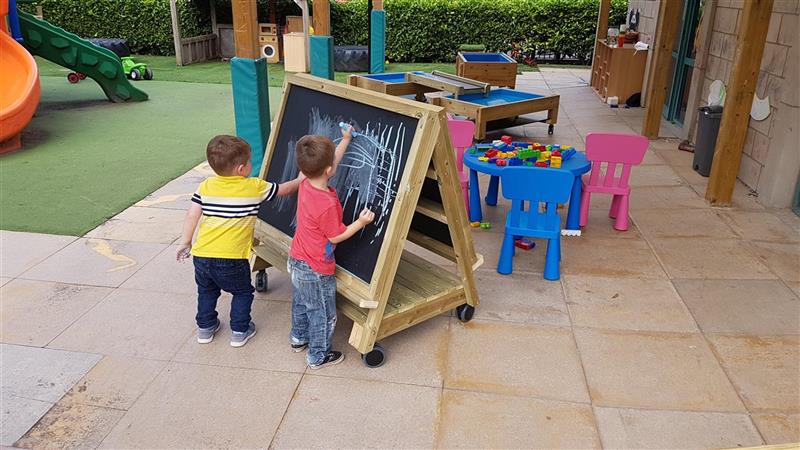
Young children need to be able to use language to communicate and socialise which progresses to discussions and debates as children mature.
Being able to speak clearly, process sounds, express ideas and interact with others is fundamental for a child’s development.
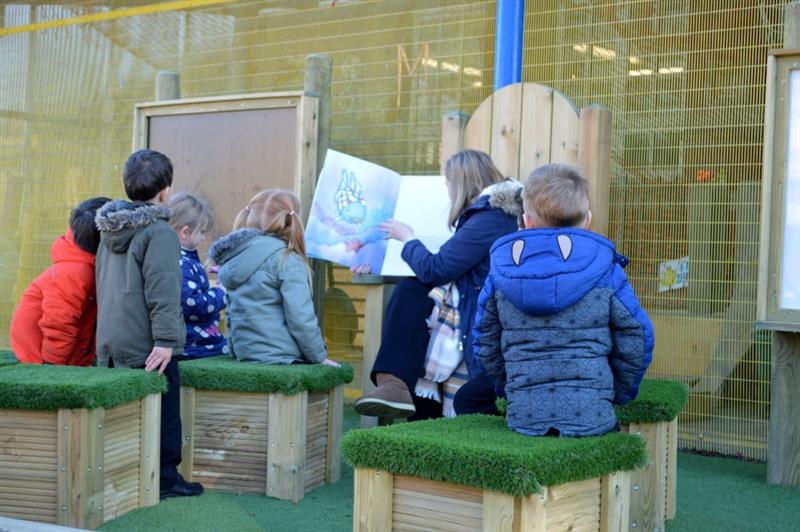
There is evidence to show that ‘lockdowns’ had an impact on young children’s language skills with more four- and five-year-olds needing help with language development.
During the pandemic young children had less social contact with friends and family members, experiences were limited and children were not exposed to everyday conversations.
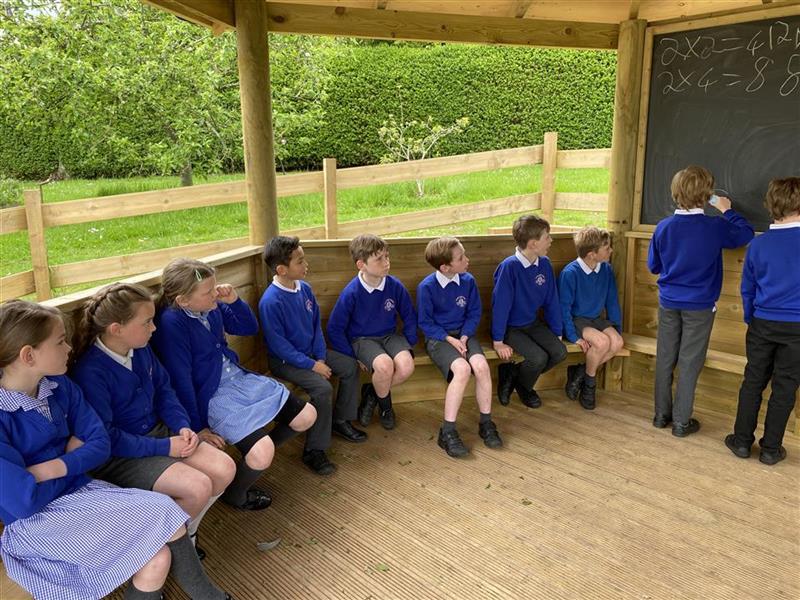
Alarmingly, children in the early years with underdeveloped skills in speaking and listening are at a much greater risk of poorer life outcomes including mental health and employability.
Speech, language and communication involves many different processes including: hearing, listening, memory, articulation, understanding sounds of speech, social interaction and non-verbal communication.
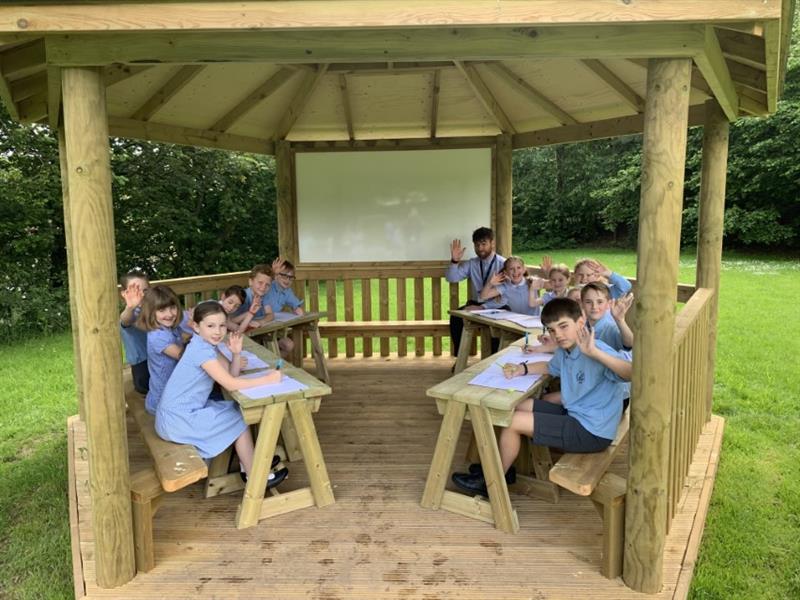
Children learn to coordinate all of these processes, however some of the areas can be delayed or difficulties can develop.
This blog will explore how the outdoor environment can provide excellent opportunities for children to develop their communication and language skills.
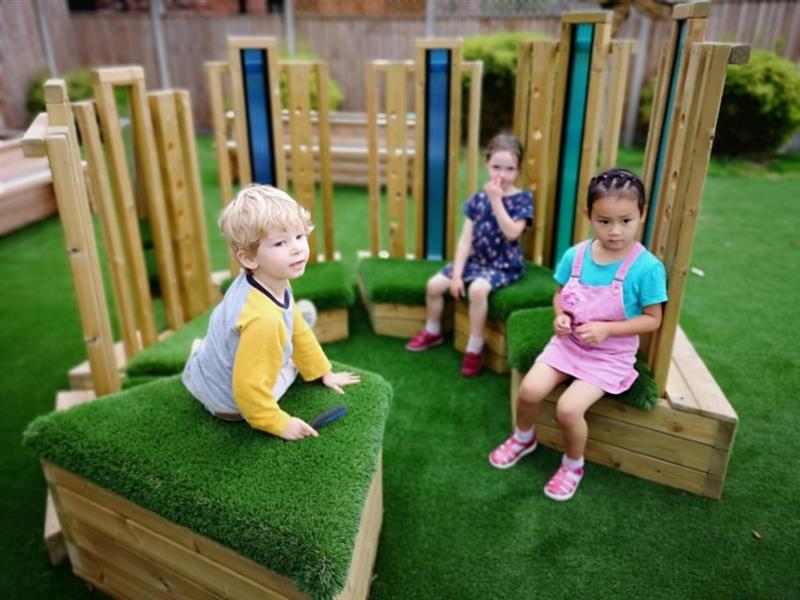
Playing ‘in role’ and Imaginative Play
If children are to develop good social skills, they need to spend time learning in a group and playing collaboratively together.
Purposeful interactions with teachers and classmates can occur through play. When children communicate through play, they are learning how language works and gaining an understanding of how to interact with others.
First hand experiences are memorable for pupils as they learn to interact with the world around them. Children are able to understand concepts and express their ideas by engaging in play.
Role play allows children to watch and imitate situations. When observing children playing ‘in role’ they constantly use language to determine the conditions for their ‘make-believe’ play. They discuss the different roles they must each take, they correct each other and learn about new situations.
A focus on imaginative play in outdoor provision motivates and supports children’s language development. Pentagon’s range of playhouses can be transformed into a host of settings that mimic real or imaginary worlds.
Pupils can visit the café, library or post office. The use of a ‘home corner’ allows children to experiment with the use of ‘real’ vocabulary in a relaxed setting where they feel comfortable.
Children need to be constantly exposed to language. Rich language needs to be surrounding children in all aspects of their learning. Having an outdoor space designated to storytelling helps to develop accurate listening and memory skills.
When pupils are seated, watching a teacher tell a story they are able to observe facial expressions, body movements and gestures and tone of voice.
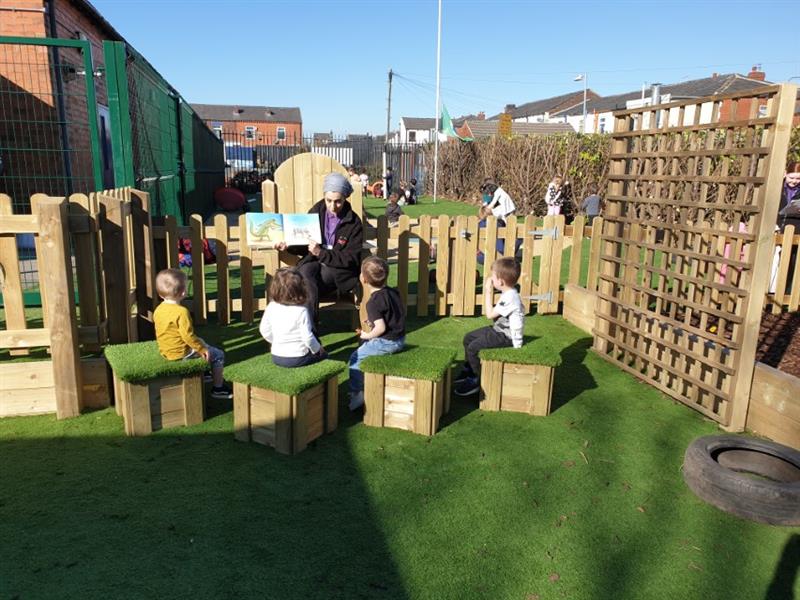
Stories are often used as starting points for children’s play and activities. Small world play allows children to become effective storytellers as they narrate their own miniature adventures.
Pupils begin to organise their ideas as they sequence their story and experiment with new vocabulary. Pentagon’s wide range of Safeturf colours can provide the perfect setting for outdoor small world play whether the backdrop involves a desert, ocean or jungle!
Plenty of Space for Play
Making effective use of the outdoor environment allows children to play with large equipment on a grand scale. This type of play encourages team work as children learn to problem solve by communicating their ideas.
Social interactions allow children to learn through authentic and purposeful experiences.
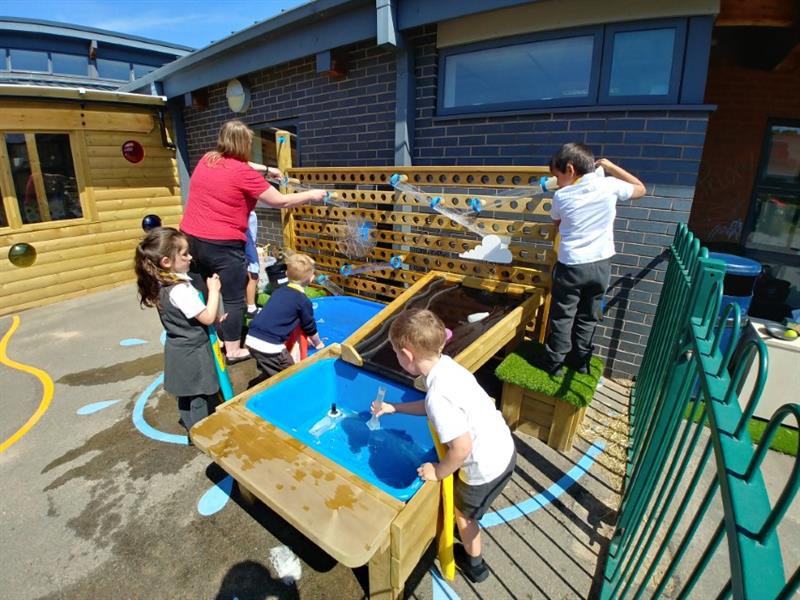
Pentagon’s Water Wall allows pupils to experiment with running water by moving large channels to create different routes. Children need to work out how to manipulate and control the flow of the water to fill up containers which will involve a range of discussions involving describing actions and explaining what is happening.
An outdoor, active learning environment allows children to develop their own meaning and to practise their developing literacy skills. Pentagon’s Den Making Posts are a great resource that promote child-initiated learning.
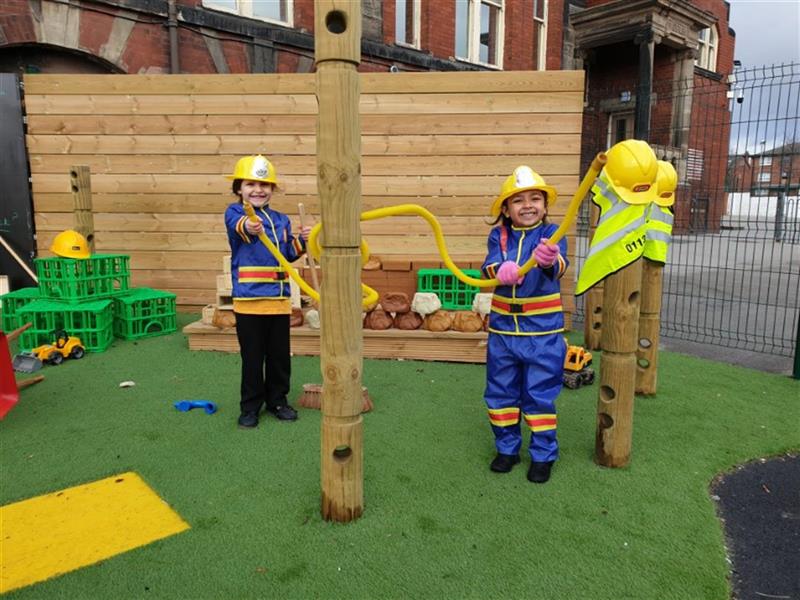
Children will need to share their ideas and talk about their plans in order to create their proposed structure. Constructive play can highly motivate pupils and engage them in higher order thinking skills.
A Rope and Pulley Materials Mover provides a real challenge for children. They need to use their oral language skills to experiment, make approximations and negotiate. When given the opportunity to play together and learn through enquiry young children naturally develop language skills through communication.
It is beneficial to have a range of art supplies readily available in the outdoor area that can be used to mark make on a large scale. Through social interactions during play children will be drawn to mark making on large easels.
When drawing together, children will often communicate their ideas and collaborate. Young pupils may decide to write letters or words to accompany their pictures, supporting each other with their phonetic knowledge. When we allow children to create freely without direction, they are able to create meaningful images independently, often choosing to write words without being prompted to do so.
Open-ended Active Play
Young children love to be active! Making use of an outdoor space gives children freedom of movement which supports communication and language development.
The outdoor environment allows children to run around and they can be louder than in other contexts. Boys in particular can find their voice when they are participating in physically active play outdoors. They may be learning how to cross the rope bridge or shouting down from the top of the hill.
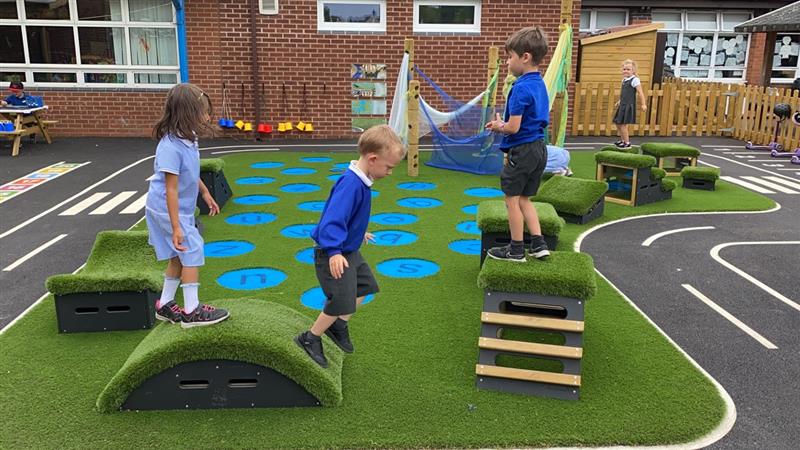
Pentagon’s range of ‘Get Set, Go!’ Blocks allow children to create their own obstacle courses, describing the route they will follow. Language skills will be developed as children share their ideas, developing new knowledge from each other. When pupils are given the opportunity to be creative their own imagination and motivation takes control, driving their communication.
As practitioners we can set up opportunities for children to work collaboratively in partnership with each other. When children feel comfortable and safe with one another, language skills will develop.
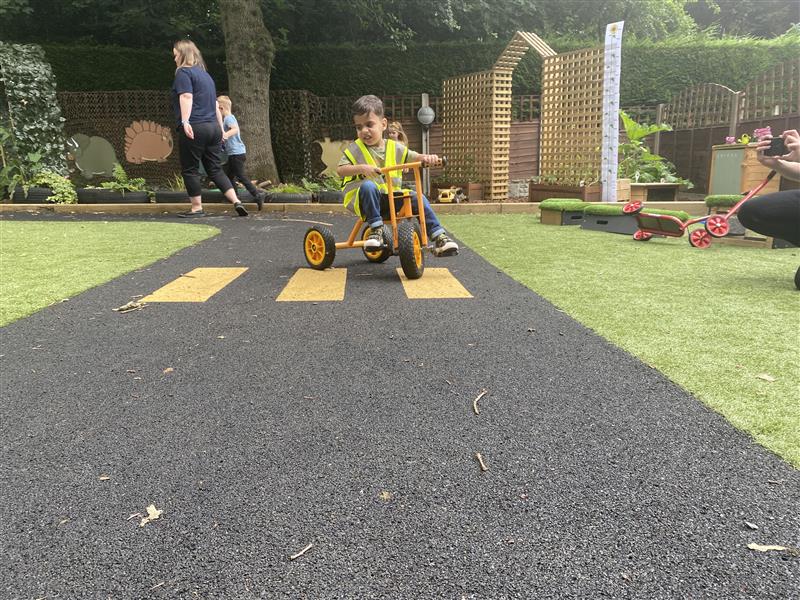
Driving tandem bikes or cars with room for passengers around a track encourages cooperation and communication. Gentle prompting from peers can encourage children to participate in outdoor role-play scenarios such as a car wash, an airport or a garage.
When children transform into other characters this helps them to begin to understand texts and relate to various character roles. Children can set expectations for one another which may be higher than those that a teacher dictates.
Product Spotlight
One child may challenge another to follow them over a hill when riding their trikes, until they reach the traffic lights. Children are able to build upon and form new skills from interaction with peers.
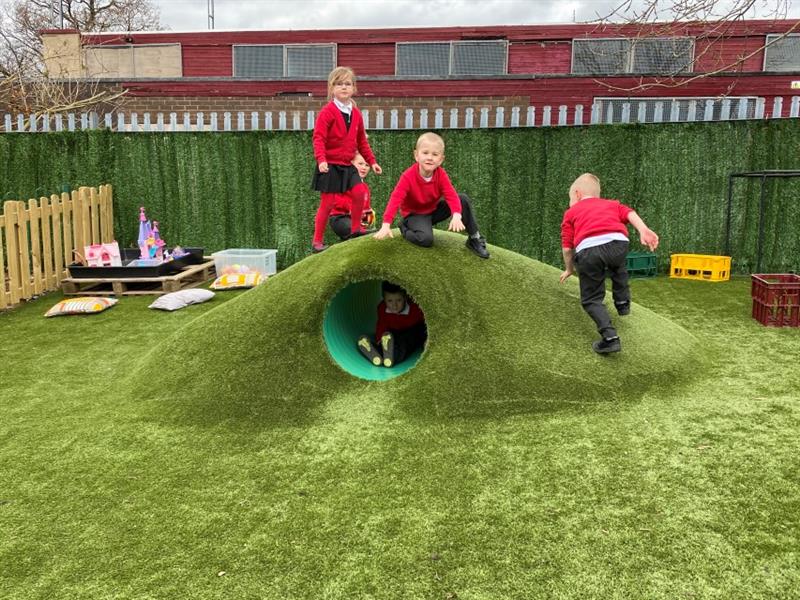
Experimenting with ‘Outdoor Voices’
The outdoor environment allows children to experiment with the range of sounds they can make. A peaceful outdoor space such as a garden or an outdoor classroom is free from distractions and background noise which can help some children to listen well or to find and experiment with their voice.
Children will learn to transition from areas of the playground which encourage quiet conversation to those which allow them to shout.
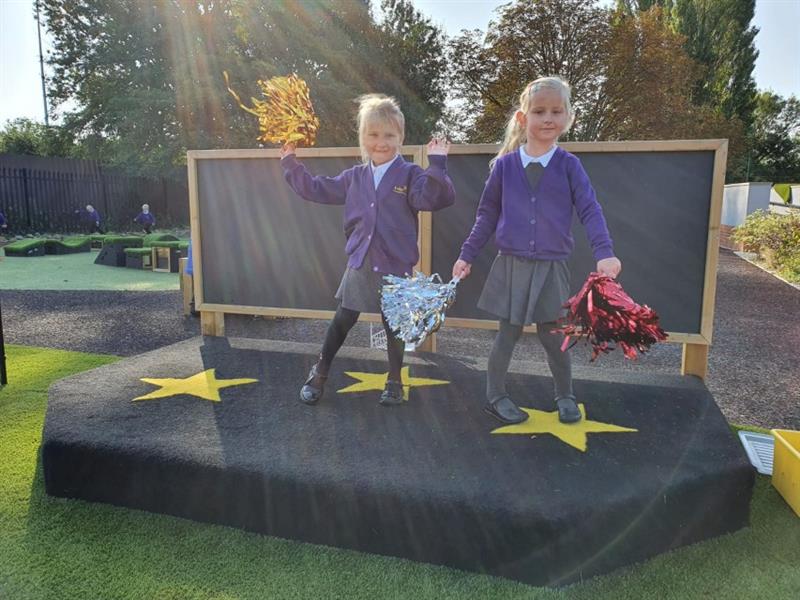
Pupils can experiment with the pitch and volume of their voice as they shout to their friends from the top of the climber and notice the change in pitch as they slide down the pole.
A range of Outdoor Musical Instruments encourages children to listen carefully for variations in sounds.
Children need to be able to differentiate sounds within words in order to read and write. Music and singing allows children to listen and respond which improves vocabulary and enunciation.
A range of telephones and walkie talkies can promote conversations outdoors and links well to dramatic play.
A World of New Experiences
An Outdoor Classroom is a rich and varied environment, full of opportunities for teachers and pupils to discover the world together. A worm sheltering under a log, a glimpse of the first snowdrops or the sound of bird call can be an opportunity for observation and enquiry.
Rich conversation can develop from teachers questioning: What do you notice? What do you think is happening here? How can we find out more?
As children make use of all of their senses to interact and explore ever-changing natural materials, they will want to ask questions and practise new vocabulary.
Children could take part in Treasure Hunts where they have to work together to find items that are rough, smooth, crunchy or soft.
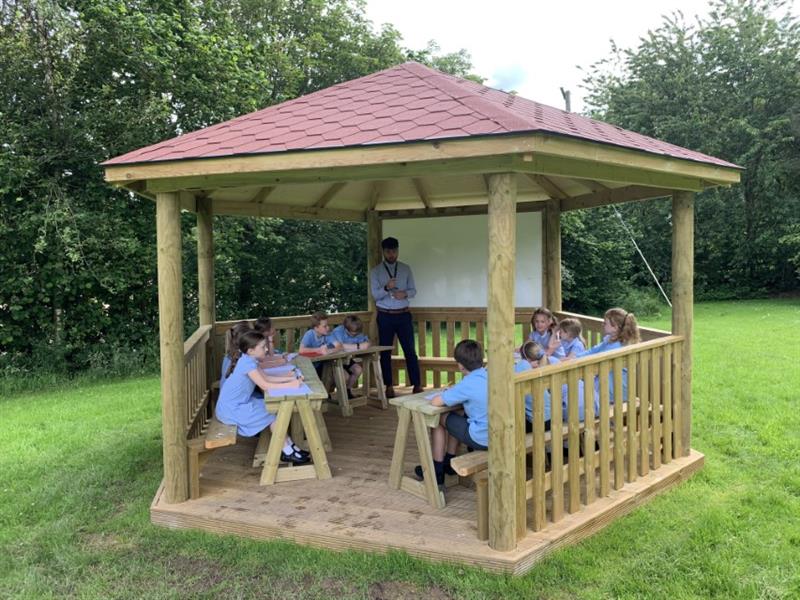
Simple, square cardboard frames can be used to allow learners to focus on something in the natural environment which holds their interest. Pupils can describe what they see and explain why it is interesting.
Children could make use of cameras to take photographs which they could share and discuss with family members, providing a meaningful context for discussion.
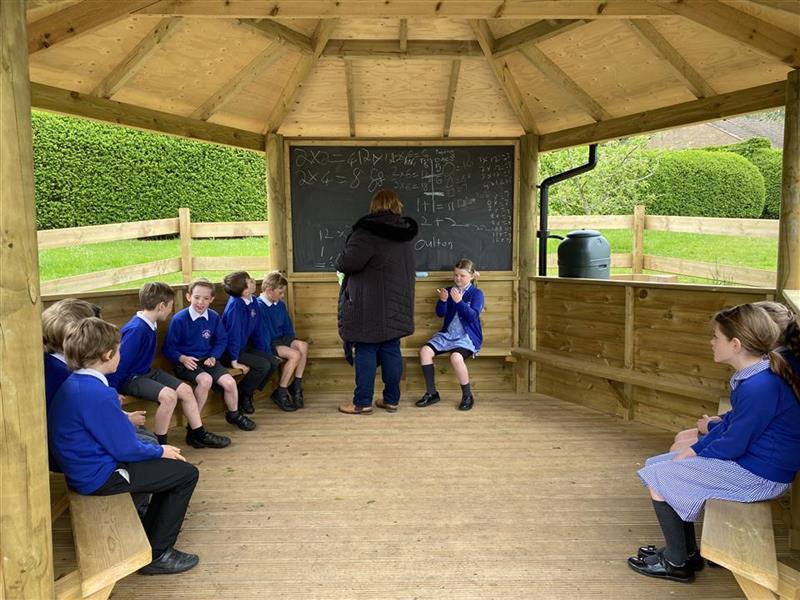
How can Practitioners Support Language and Communication Development?
It can be useful for practitioners to play with enthusiasm alongside children, following their lead by observing, wating and listening. It may beneficial to describe what the child is doing or repeat what they are saying, possibly adding a few new words, this provides modelled language that children can follow and build on. Care needs to be taken to model correct responses for children rather that correcting a child’s answer.
Open-ended questions which require children to give more than a yes/no answer by elaborating on and explaining their response helps to develop strong communication skills.
When we spend time in conversation with pupils, working and learning alongside them, sharing our interests and modelling thinking we provide them with the best resource for language development. Giving children ‘wait time’ can be important for them to process what has been said and to formulate an answer.
Adults play a crucial part in developing children’s language skills. Practitioners are able to model appropriate vocabulary, demonstrate strategies such as listening and sustaining conversation. Adults can show children how to negotiate gently and respectfully, by agreeing codes of behaviour.
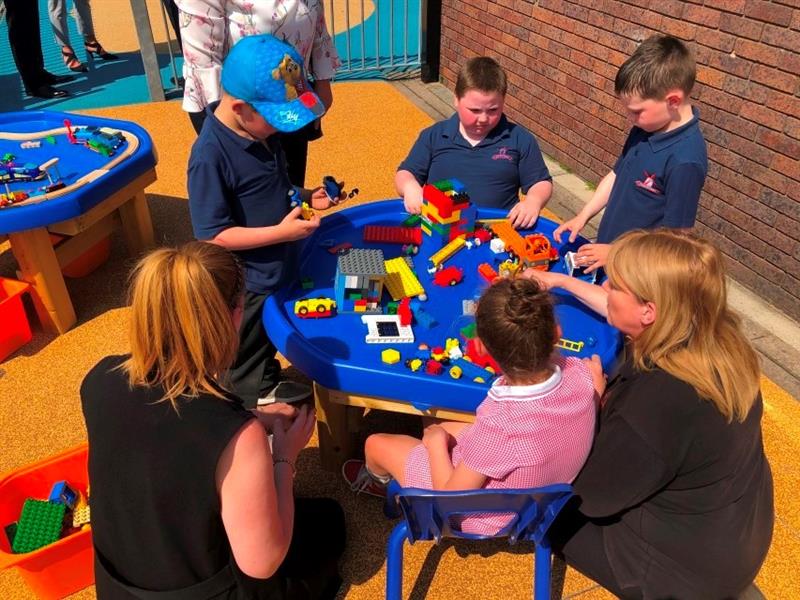
As practitioners we need to think carefully about the set-up of our physical spaces to ensure that they promote interaction and communication.
Where do individual children prefer to communicate?
Are there opportunities for role-play outdoors?
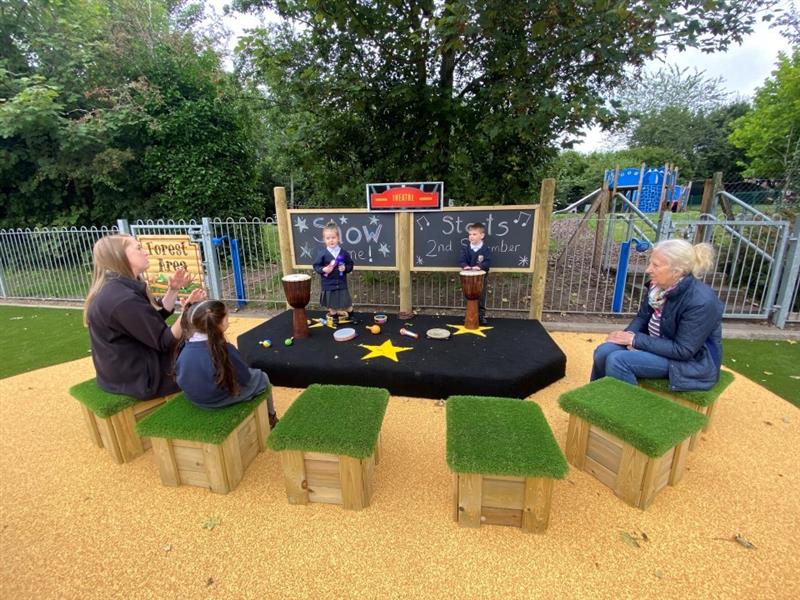
Can resources be moved to cater for children’s current interests? Our outdoor environment should inspire, stimulate, challenge and motivate children to learn and communicate.
The ability to communicate well is a fundamental life skill for children, effecting their ability to learn, develop friendships and future life chances. It is imperative that we provide language rich outdoor environments where children learn to manage emotions and communicate feelings, maintain relationships and build foundations for reading and writing.
Many of these items are available in our Online Shop, so take a look now and have them delivered in 6-8 weeks!
Or, if you can't find what you're looking for then Contact Us Today and we'll be happy to help!



